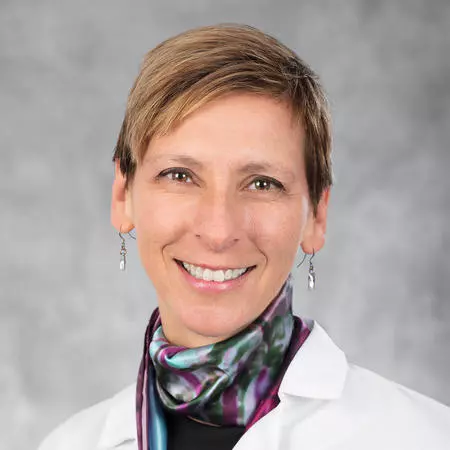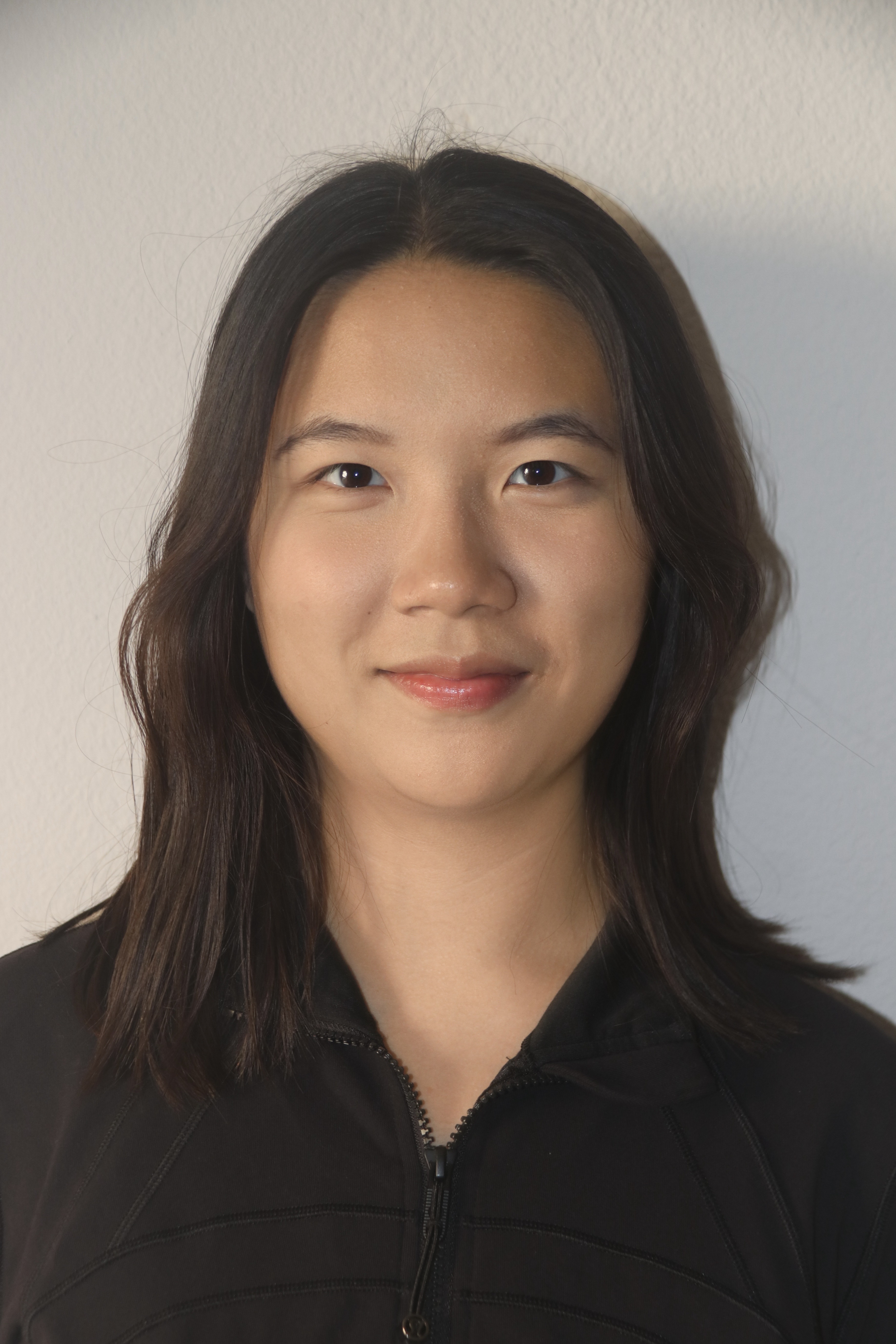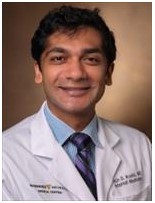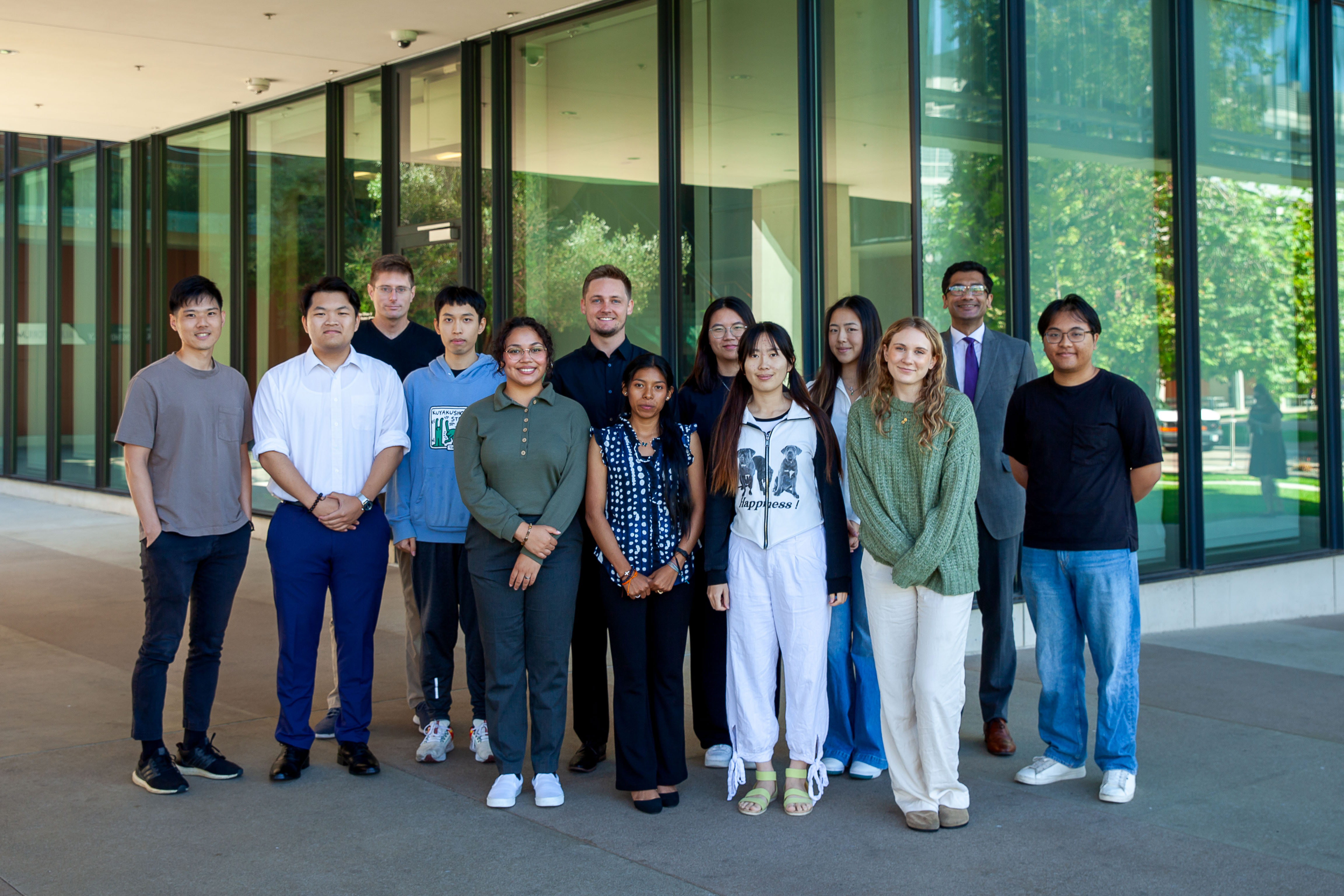2024 Summer Internship
About the DBMI Summer Internship Program
Since 2011, we have organized an annual 8 - 10 week summer biomedical informatics internship program that has been funded by research grants or cooperative agreements. The summer internship program includes:
- Structured orientation
- Weekly scientific presentations by faculty
- Organized social events
- Internship symposium (webcast)
We have hosted over 100 trainees from over 40 institutions as part of our summer internship, including trainees for the NIH Short Term Training Positions (STTP) program. The program has generated more than 30 peer-reviewed articles and dozens of scientific posters.
The internship uses a project-based curriculum where interns need to select a project and mentor during the application process. Trainees work on projects covering a wide range of topics relevant to biomedical informatics, including data integration, image processing, natural language processing (NLP) tools, data sharing and privacy technology, etc.
14th Annual UC San Diego Department of Biomedical Informatics Summer Internship Program Symposium Recap
Event held on Tuesday, August 13, 2024
Opening Presentation:

University of California San Diego
Clinical Professor, Division of Biomedical Informatics, Division of General Internal Medicine
Chief Medical Information Officer, Population Health, UCSDH
Interim Chief, Division of Biomedical Informatics, UCSD
Interim Chair, Department of Biomedical Informatics, UCSDH
Co-Principal Investigator, California Integrated Vital Records System
Site Principal Investigator, UCSD NIH All of Us, https://www.allofusucsd.org/en/about-us
Primary Care Internist, Internal Medicine
Keynote Speaker:
Chief Health AI Officer for UC San Diego Health and Joan and Irwin Jacobs Chancellor’s Endowed Chair in Digital Health Innovation at UC San Diego
Dr. Singh is the Chief Health AI Officer for UC San Diego Health and Joan and Irwin Jacobs Chancellor’s Endowed Chair in Digital Health Innovation at UC San Diego. In these roles, Dr. Singh oversees AI strategy and governance for the health system and leads AI initiatives within the Jacobs Center for Health Innovation. He completed his internal medicine residency at UCLA Medical Center, where he served as chief resident, and a nephrology fellowship in the combined Brigham and Women’s Hospital and Massachusetts General Hospital program. He completed his medical education at the University of Michigan Medical School and holds a master’s degree in medical sciences in Biomedical Informatics from Harvard Medical School.
Presenters:
Brandon Fuller is a recent graduate from San Diego State University with a Bachelor’s Degree in Computer Science. He is pursuing a career in Bioinformatics research and will be starting a post-bacc program with the National Institutes of Health this fall 2024, during which time he will apply for PhD programs. This summer his research has consisted of improving the ability of existing Machine Learning(ML) models to predict gene expression and epigenetic features given an arbitrary sequence of DNA.
Presentation Title: Improving Gene Expression Prediction Using Machine Learning
Advisor: Tiffany Armariuta Ph.D
Funding: UCSD HSI-DDI & UCSD STARS

Xiaoyu Gui is a rising senior at UC San Diego, majoring in Data Science with minors in General Biology and Mathematics. Passionate about health data science, she aspires to contribute to this field after graduation. Under the mentorship of Dr. Tiffany Amariuta, her current research focuses on leveraging single-cell RNA sequencing (scRNA-seq) data to identify causal disease pathways (gene sets). Her work aims to enhance disease understanding at a cellular level and aid in the development of targeted therapies.
Presentation Title: The Role of Genetic Regulation of Gene Sets in Diseases.
Advisor: Tiffany Armariuta Ph.D
Funding: UCSD HSI-DDI
Kaifeng Jin is a rising second-year Master of Computer Science student at UCSD. He has a background in computer science, machine learning, causal discovery, and bioinformatics and plans to continue research in these fields in the future. This summer, Kaifeng is working on research using machine learning models with non-genetic data (including patients' past measurements, lifestyle factors, etc.) combined with Genotype PCA to predict cardiovascular diseases. After this summer internship, he plans to incorporate polygenic risk scores to further improve predictive performance.
Presentation Title: Machine Learning for Predicting Cardiovascular Diseases
Advisor: Matteo D' Antonio Ph.D
Funding: UCSD DBMI
Gisel Larios is a rising senior at California State University Bakersfield where she majors in Biology with a concentration in Biotechnology and minor in Women, Gender and Sexuality Studies. Her research back at home is in Dr. Danielle Solano's Organic Chemistry laboratory where she focus on deriving a birth control compound to have anti-cancer properties. She is an NIH U-RISE scholar and recipient of the Sally Casanova Scholarship 2024-2025. She hopse to focus her career on advancing women's health by focusing on endometriosis, polycystic ovary syndrome, and hormonal imbalances.
Presentation Title: Identifying Social Determinants with Opioid Use Disorder in Patients with Endometriosis
Advisor: Rodney Gabriel M.D., M.A.S.
Funding: UCSD HSI-DDI & UCSD STARS
Sabrina Lord is entering her final year as a master's student in Health Informatics at UC Davis. With a background in clinical research, she is working to enhance healthcare analytics using Graph Extensions in UCSD’s Nightingale Dataset. This project aims to leverage advanced graph technology to optimize data insights, improve patient care, and support informed decision-making in healthcare.
Presentation Title: Enhancing Healthcare Data Insights with Apache's Graph Extension in Nightingale Database at UC San Diego
Advisor: Mike Hogarth M.D.
Funding: UCSD DBMI; Mike Hogarth
Benjamin Ly Is a rising 4th year at UC San Diego, majoring in Psychology w/ specialization in Human Health and minoring in Computer Science. He spent the summer working with Dr. Nicole Lopez focusing on risk factors of colorectal cancer and developing a predictive model of peritoneal carcinomatosis development in young adults. As a result, he learned how to use R and R-Studio effectively to manipulate large scale datasets and data visualization. He hopes to pursue the Bioinformatics industry and focus on healthcare informatics. Overall, he wants to improve patient treatment and healthcare standards.
Presentation Title: Risk Factors of Young-onset Peritoneal Carcinomatosis from Colorectal Cancer
Advisor: Nicole Lopez M.D.
Funding: UCSD HSI-DDI
Eric Nguyen is a second-year computer science student at UCSD. He has an interest in becoming a Software/Data Engineer. This summer, he worked with Patel Sandip and Post Kai, utilizing Databricks to analyze data across demographic cross-sections to see what factors play into non-small cell lung cancer. Using this information, he come up with possible solutions to these factors/issues.
Presentation Title: Demographic Significance of Epidermal Growth Factor Receptor Mutations in Non-Small Cell Lung Cancer Patients
Advisor: Sandip P. Patel M.D.
Funding: UCSD HSI-DDI
Erica Rodas-Montejo Is a first-generation Guatemalan student entering her senior year at California State University San Marcos, where she is majoring in Chemistry. This summer, she conducted research in Dr. Kathleen Curtius’s lab, focusing on the complexities of pathogenic bacterial strains in the gut microbiome of pre-cancerous samples and their correlation with cancer progression in inflammatory bowel disease. Her career aspiration is to earn a Ph.D. in medicinal chemistry and apply it to cancer research.
Presentation Title: Teasing Apart the Microbiome in Pre-cancerous Conditions of the Colon
Advisor: Kathleen Curtius Ph.D
Funding: UCSD HSI-DDI & UCSD STARS

Amanda Yang is a rising senior at Washington University in St. Louis, where she is majoring in Genomics & Computational Biology with a minor in Computer Science. Her research interests include single-cell analysis, transcriptomics, and developmental biology. This summer, she focused on analyzing the effects of circadian gene expression on liver cancer development in the absence of IkkB and Shp2 genes. After graduating, she hopes to pursue a career in healthcare and to continue to conduct research in biomedical informatics.
Presentation Title: Single-Cell Analysis of Circadian Disruption Effects on Hepatocellular Carcinoma
Advisor: Hannah Carter Ph.D
Funding: UCSD HSI-DDI
Boning Yang is currently a graduate student in Data Science at UC San Diego. She completed her bachelor's degrees in Cognitive Science (with a specialization in Machine Learning and Neural Computation) and Dance at the same institution. Under the mentorship of Dr. Shamim Nemati at UCSD Health and Dr. Aaron Besterman at Rady Children's Hospital, she is developing advanced machine learning models (NLP) for decoding mental health crises in youth with intellectual and developmental disabilities. Her interdisciplinary expertise and research interests include predictive modeling, MEG spike detection, visual motion classification, and cognitive decision making, positioning her as a well-rounded researcher in the field of data science.
Presentation Title: Decoding Mental Health Crises in Youth with Intellectual and Developmental Disabilities Through Machine Learning
Advisor: Shamim Nemati Ph.D
Funding: UCSD HSI-DDI
Closing Presentations:

Jejo Koola, MD, MS
Internship Director
Matteo D'Antonio, PhD
Internship Director

